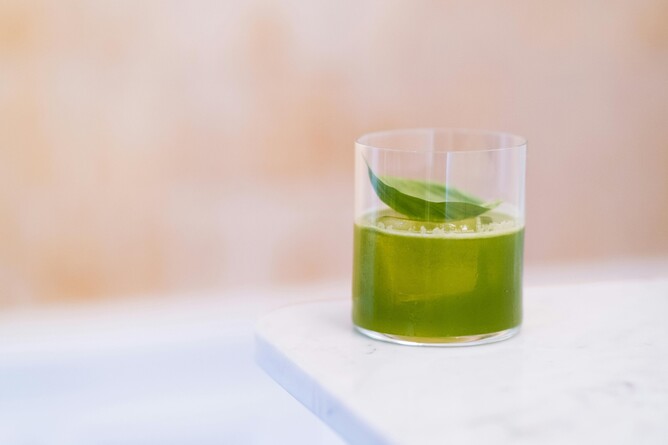In today's world, environmental toxins are nearly impossible to avoid. From heavy metals to mould, chemicals in our air, water, and food our health is constantly being challenged. Yet, with the right knowledge, we can start to take steps towards minimising our exposure and supporting our body’s natural detoxification processes and pathways. Let's dive into some of the common environmental toxins, their health implications, and effective lifestyle, supplement, and nutritional strategies you can utilise to help your body detoxify and thrive.
What Are Environmental Toxins?
Environmental toxins are harmful substances that permeate the world around us. These toxins come from various sources:
Heavy metals like lead and mercury are found in contaminated water, old paints, and certain fish.
Pesticides and herbicides are used in conventional farming, often making their way into our food and water.
Phthalates and BPAs in plastics and personal care products can leach into our bodies and disrupt hormone balance.
Mould toxins in water-damaged buildings pose a significant health risk, especially to those with sensitivities.
Understanding these common sources of toxins helps us make conscious choices to reduce exposure and protect our health.
Health Implications of Environmental Toxins
Environmental toxins can accumulate in the body over time, leading to a range of health issues, from minor symptoms to severe conditions. Studies show that exposure to toxins like heavy metals and pesticides may increase the risk of:
Neurological disorders (such as ADHD or Parkinson’s disease)
Hormonal imbalances, especially disruptions in oestrogen and testosterone levels
Chronic inflammatory diseases and autoimmune conditions
Cancers associated with long-term exposure to certain chemicals
By proactively managing exposure and supporting the body’s natural detox systems, we can mitigate these risks.
Supporting the Body’s Natural Detoxification: A Three-Phase Process
The liver, our primary detox organ, plays a critical role in processing and eliminating toxins. It operates through three phases of detoxification, each essential for removing harmful substances from the body.
1. Phase One: Activation
During this phase, the liver converts fat-soluble toxins into water-soluble substances. Although this step is necessary, it creates reactive intermediates that can become toxic if not properly processed. Elevated liver enzymes can indicate that this phase is not running optimally. Supporting nutrients: Vitamin B complex and antioxidants like glutathione and N-acetylcysteine (NAC) help protect the liver from damage during this phase.
2. Phase Two: Conjugation
In this phase, the liver attaches specific molecules to the intermediates, preparing them for excretion. Conjugation processes like methylation, sulfation, and glucuronidation neutralise toxins, making them easier to eliminate. This phase benefits from a diet rich in amino acids, especially from high-quality protein sources. Supporting herbs and nutrients: Milk thistle, glutathione, and amino acids (such as glycine) are essential for effective conjugation.
3. Phase Three: Clearance
The final step involves eliminating processed toxins via bile, urine, and stool. Impaired clearance can cause toxins to recirculate in the body. Supporting compounds: Tauroursodeoxycholic acid (TUDCA) and bitters like globe artichoke and dandelion promote bile flow, enhancing detoxification efficiency.
Practical Strategies for Reducing Toxin Exposure
While we can’t avoid environmental toxins entirely, there are practical steps we can take to minimise our exposure.
1. Water Quality
Invest in a quality water filtration system to remove contaminants from drinking water. Consider a reverse osmosis filter or look for local spring water sources, if available.
2. Choose Organic Foods
Opt for organic produce when possible to reduce pesticide exposure. Organic foods are grown without synthetic chemicals, significantly lowering your body’s toxic burden.
3. Avoid Plastics and Chemical-Laden Products
Switch to glass or stainless steel for food storage and avoid personal care products with phthalates, parabens, and artificial fragrances. These simple changes can help protect your body from harmful endocrine disruptors.
4. Mindful Cleaning Products
Select non-toxic or natural cleaning products for your home. Conventional cleaners often contain harsh chemicals that can irritate the respiratory system and disrupt hormone balance.
Nutritional Strategies to Support Detoxification
Certain foods and dietary habits are particularly effective at enhancing the body’s detoxification capabilities.
Detox-Supporting Foods
Cruciferous vegetables: Broccoli, cauliflower, and kale contain compounds that support liver enzymes and neutralise toxins.
Citrus fruits: Rich in vitamin C, citrus fruits help combat free radicals and support liver health.
Sulfur-rich foods: Garlic and onions provide sulfur, a key element in Phase Two detoxification.
Dietary Practices
Intermittent fasting: Fasting periodically allows your digestive system a break and lets the body focus on detoxification and cellular repair.
Whole foods and fiber: A diet rich in fiber keeps the digestive system functioning well, promoting regular waste elimination and helping prevent reabsorption of toxins.
Hydration
Adequate hydration is crucial for detox. Water helps flush out toxins, while herbal teas like dandelion and green tea support liver and kidney health. Aim for at least eight glasses of water daily, increasing if you’re active or live in a hot climate.
The Role of Binders in Detoxification
Sometimes, detoxification can mobilise certain toxins that need to be safely bound and eliminated to prevent reabsorption. Binders are substances that “bind” toxins in the gut for excretion.
Types of Binders
Zeolite: Effective for heavy metal detox.
Activated charcoal: A general binder for gut toxins.
Bentonite clay: Good for toxin binding but also removes essential minerals, so use it mindfully or under the supervision of an experienced practitioner.
Chitosan: Helpful for binding bile and mold metabolites.
Embracing a Holistic Approach to Detoxification
Detoxifying your body isn’t about quick fixes—it’s about a lifestyle that supports overall health and well-being. By understanding common environmental toxins, the liver’s detoxification phases, and effective ways to reduce exposure, you can take proactive steps toward better health. Supporting your liver with detox-friendly foods, supplements, and regular testing will empower your body to handle the demands of modern life with resilience and vitality.
Whether you’re just beginning your detox journey or optimising your routine, remember that true detoxification is an ongoing commitment to nourishing and protecting your body. Embrace the journey for a healthier, more vibrant you.
